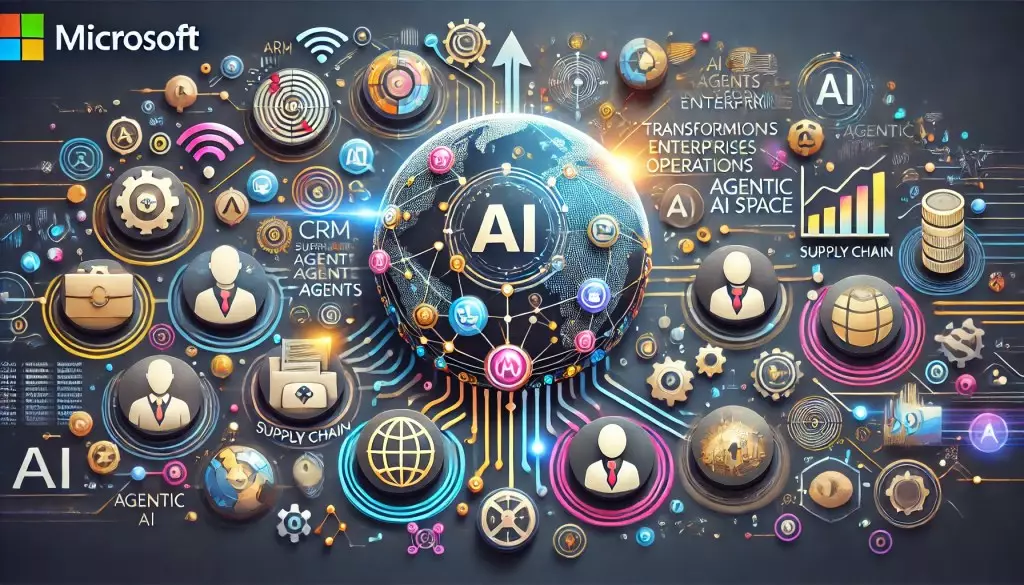At Ignite 2024, Microsoft showcased a groundbreaking advancement with the introduction of ten autonomous AI agents tailored for enterprise applications. This move marks a significant shift in how businesses can leverage artificial intelligence, transitioning from theoretical frameworks to practical implementations that can streamline numerous operational aspects. By providing pre-built, specialized agents designed for essential business functions like customer relationship management (CRM), supply chain logistics, and financial reconciliation, Microsoft is positioning itself at the forefront of the AI landscape, a space where competitors have struggled to gain similar traction.
What sets Microsoft apart is not just the introduction of these agents but the comprehensive ecosystem that supports them. Unlike traditional AI tools that often require extensive customization, Microsoft’s agents are readily deployable out of the box. This ease of use significantly reduces the time and resources businesses must invest to benefit from AI operations. For instance, whether companies seek to refine their lead qualification processes or enhance their inventory management, these agents have been tailored for immediate implementation. This approach not only increases efficiency but also opens the door for companies that may have hesitated to adopt AI due to implementation challenges.
Furthermore, Microsoft’s commitment to extensibility is evident in its integration capabilities. The platform supports more than 1,400 third-party connectors and offers compatibility with over 1,800 large language models (LLMs), allowing businesses to customize their AI experiences significantly. This level of flexibility is crucial for enterprises that demand solutions aligned closely with their unique operational needs.
The rapid adoption of Microsoft’s AI agents further emphasizes the company’s edge in the market. With around 100,000 organizations reportedly engaging with these tools—doubling in deployment rates just last quarter—this growth trajectory dwarfs the user engagement seen in competing solutions from companies such as Salesforce, Google, and AWS. The momentum suggests that businesses recognize the tangible benefits these intelligent agents can offer.
Moreover, Microsoft’s strategy appears to be a well-calibrated response to a competitive market landscape. By leveraging its extensive suite of productivity applications and vast customer base, the company has positioned itself as the go-to provider for enterprise AI solutions. As organizations increasingly seek efficiency and innovation, Microsoft’s proactive approach in deploying these agents helps solidify its place at the apex of the industry.
The implications of Microsoft’s AI innovations extend beyond mere technical advancements; they directly influence how enterprises approach workflow management. The specificity of the agents—ranging from CRM lead scoring to time management optimization—forces traditional players in specific niches to reconsider their strategies. Startups that once held dominance in particular sectors may find themselves challenged by Microsoft’s robust, all-encompassing approach to AI.
Further, Microsoft’s shift in pricing strategies—from a focus on “per token” usage models to a value-oriented “per outcome” approach—suggests a broader industry transformation. Companies are beginning to recognize that the value derived from AI tools should not solely depend on raw model outputs but rather the outcomes they enable. This paradigm shift prompts enterprises to rethink how they measure success in AI application.
Despite Microsoft’s current momentum, the competitive landscape remains fierce. Major players like Google and AWS are continually enhancing their offerings in hopes of capturing market share. Open-source frameworks also introduce viable alternatives, presenting new opportunities for businesses seeking tailored solutions.
These competitors are not stagnant; their relentless innovation could pose challenges to Microsoft’s leading position. While the company currently enjoys a substantial advantage, it cannot afford to rest on its laurels.
As analyzed throughout this discourse, Microsoft has effectively mapped out a strategic landscape for AI in enterprises through its introduction of autonomous agents. This initiative not only reinforces its leadership but also sets the stage for a fundamental shift in how businesses deploy and derive value from artificial intelligence. With the potential for significant transformation in workflow management and operational efficiency, Microsoft’s offerings herald a new chapter in enterprise AI.

